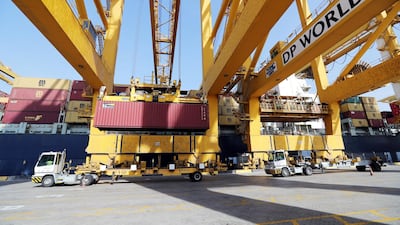The Covid-19 pandemic is expected to transform consumer demand in the long term, with a greater emphasis on automation, according to a new study by the Dubai Future Foundation and Dubai Future Councils.
The Internet of Things (IoT) will be central to the automation of consumer demand so that, for example, your refrigerator will place an order when groceries are running low, or expected to run low, the new study titled Life After Covid-19, found.
It also predicts a transformation in the marketing of consumer products, whereby these goods will become free when you sign up for subscription to autonomous fridge re-stocking, for example.
"We can expect devices similar to Alexa or our mobile phones to be free because they represent a company’s extension into our lives to capture and understand our needs for a set of subscription services," the study said.
Covid-19 has had an unprecedented impact on daily life, changing the way people work and socialise, restricting air travel, paralysing international trade and strangling global economic growth.
The study expects that the next phase of automation in demand "may well come through technologies that link the digital and physical worlds", such as 3D printing, unmanned ground vehicles (UGVs), unmanned aerial vehicles (UAVs), the Internet of Things (IoT), augmented reality (AR), exoskeletons and companion robots.
For example, 3D printing allows a customer to design a pair of shoes or choose a ready template and print it at one of a brand's nearest 3D printing booths, it explained. UGVs or UAVs could then pick up the products and drop them at the customer’s doorstep.
The key driver of automating consumer demand in future will be using these technologies to free up people to do more.
"What is special about such technologies is that they enhance and sustain human agency," the study said.
"For example, if more consumers today could fly their own drones to run errands, operate companion robots to perform tasks and use smart wearables and exoskeletons to avoid hazards such as infections, there would have been less urgency to lock down economic activity and global supply chains could be sustained."
The report also found that many countries will look to use such technologies to shorten supply chains, where appropriate, by producing goods in their home markets, even if incremental manufacturing costs are slightly higher.
It cited a move by Japan to set aside $2bn to help some companies shift production back to the country from China, as reported by Bloomberg.
“What we have seen over the past three months is a focus on securing supply chain and improving resilience," DP World chairman and chief executive Sultan bin Sulayem said in a statement accompanying the report.

